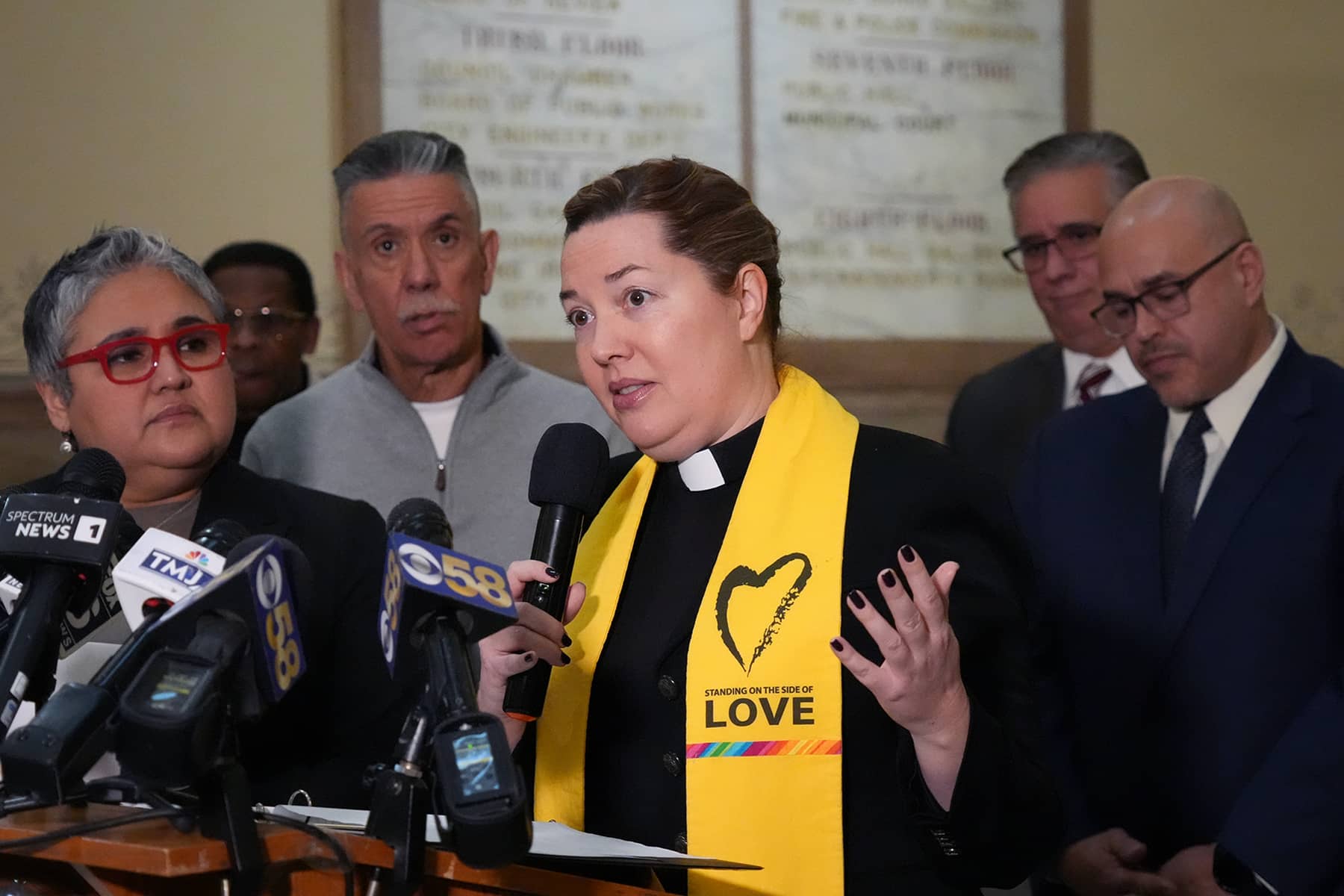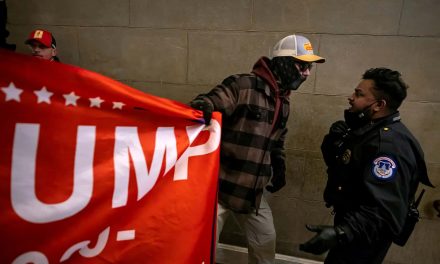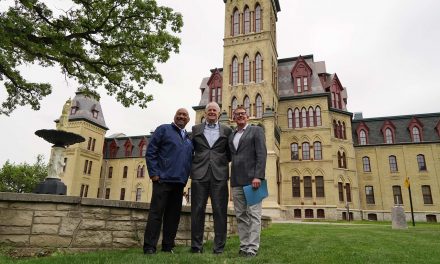
Local leaders and advocates gathered at City Hall on January 22 to address what they described as growing anxiety among Milwaukee’s Hispanic and immigrant communities, following a series of newly signed executive orders by President Donald Trump.
The orders, including measures to restrict birthright citizenship and halt refugee admissions, have prompted calls for preparedness and unity among advocates, faith leaders, and elected officials.
The participants addressed the potential repercussions of Trump’s actions. They also highlighted practical steps local residents can take to protect themselves. Other speakers offered prayers, legal advice, and reassurance that Milwaukee remained a supportive community for families of all backgrounds.
“Just two or three years ago, we were calling these people essential workers. They were keeping us fed. They were caring for our elderly that were locked away in their high care homes, and doing so much for us,” said Darryl Morin, National President of Forward Latino. “There’s a tremendous amount of concern here in our immigrant and Latino community. And not just from the individuals who are undocumented, but from their extended family, from their friends, their neighbors, their parishioners, their co-workers, and in many cases even their employers.”
Morin also shared other examples of concern, like the child who might find themselves walking out to the school pickup line only to see a teacher in tears walk up to them and say that their parents will not be coming. Or the mother who may be working a job who is approached by her supervisor and told that she must conduct certain amoral and dehumanizing acts to keep them from calling immigration officers. Or the father who answers the door to find their landlord suddenly demands a dramatic increase in rent, otherwise ICE will be called.
“These are not dramatizations, these are things that have happened in the past and these are things that we know will happen now. So we’re asking for the public. Keep your eyes open,” added Morin. “If you see somebody in a position of authority exploiting someone, please give us a call so that we can intervene. We are also continuing to take calls from victims of hate crimes.”
In a statement released in conjunction with the press conference, Common Council President José G. Pérez, Alderwoman JoCasta Zamarripa, and Alderwoman Marina Dimitrijevic urged their constituents to remain vigilant and work together. The statement underscored the possibility of unpredictable federal actions. It was written to reassure Milwaukee residents that city leaders were committed to protecting their rights.
Yesterday, the tradition and pageantry that accompanies the inauguration of the U.S. President attracted the eyes of the nation and world to Washington DC. This symbolism of civility, highlighted by the peaceful transition of power, quickly veered in a harmful direction as executive orders were signed seeking to restrict birthright citizenship and pause refugee admissions, amongst other things. Many of the orders signed have direct negative connotations for the immigrant community. To our constituents across the city, and all those who are fearful right now, we will continue to work to make sure they stay safe. While we might not know what will happen in the coming weeks and months, the best thing we can do as a community is be prepared and support one another.
At the press conference, Alderwoman Zamarripa spoke of the need for unity among residents, city leaders, and faith-based organizations. As the first Mexican-American woman elected to the Common Council to represent Milwaukee’s near-south side, she reminded residents that law enforcement officers in the city do not want undocumented families to remain silent if they are victims or witnesses of crimes.
In addition to engaging with a number of different police departments and fire departments, she has personally spoken with Chief Jeffrey B. Norman of the Milwaukee Police Department. She said that the public should feel confident to reach out to first responders without fear of any collaboration with ICE. The emergency lines also offer language services.
“I know his number one concern is public safety, and public safety isn’t well-served if you have a whole demographic of the population not willing to call and report crime. So that’s why people should be safe in calling the Milwaukee Police Department if they witness anything or suffer anything,” said Alderwoman Zamarripa. “To my immigrant communities residing in the city of Milwaukee, I stand with you during this time of great uncertainty. We stand with you. I am here at your service as one of your elected city leaders, and I want to encourage you to be and remain civically engaged.”
Forward Latino presented an online resource sheet for families who might risk separation. The guides, available in English and Spanish, recommend that families identify a licensed immigration attorney, prepare power-of-attorney documents for childcare, and keep vital records readily accessible. Families were also encouraged residents to seek out licensed attorneys who specialize in immigration to avoid scams or misinformation.
Clergy from various denominations spoke at the press conference, emphasizing the moral imperative to “welcome the stranger.” The Rev. Jennifer Nordstrom, senior minister at the First Unitarian Society of Milwaukee, opened the event with a prayer.
Pastor Patricia Ruiz-Cantu echoed those sentiments in Spanish, quoting from the Book of Philippians. She urged families to stay calm and to place trust in God while also taking practical measures, such as designating guardians for children.
“Knowledge is our best ally in these moments,” she said. “Be informed, be strong in your faith, and plan ahead. It is very important that people be prepared and know their rights.”
Israel Ramón, Milwaukee County Register of Deeds, detailed procedures for obtaining copies of birth, marriage, and other vital certificates. He encouraged parents to keep multiple copies of those documents in safe places, including with relatives or trusted friends.
“Every individual living in Wisconsin has a right to obtain their children’s birth certificate, or any other vital record that they are the subject of, that they have an immediate family member in, or they have a direct and tangible interest in,” said Ramón. “I encourage individuals to have copies of these important documents with them at all times.”
Wisconsin Representative Sylvia Ortiz-Velez highlighted labor shortages in the state’s agriculture and service sectors. She expressed concern that if undocumented workers were removed or driven underground by fear, family-owned businesses would suffer.
“Wisconsin is now facing more than the 45,000 worker shortage. And by removing these people, many of who pose no public threat, will make it difficult for Wisconsin to deliver to the residents of our great state the resources that we need to feed our families, to produce dairy, meat products, and other agricultural commodities. We risk losing that hard-working labor that we need to keep Wisconsin family-owned businesses going,” said Representative Ortiz-Velez.
Undocumented immigrants pay $96.7 million per year in federal, state, and local taxes. They also pay into the social security system even though they are not eligible to receive a benefit.
The city is also considering the creation of an Immigrant Advisory Board, to bring stakeholders together in a collaborative fashion to discuss critical and timely issues of importance to immigrant communities, and to support Milwaukee’s goal of making sure the rights of everyone are protected.
The debate over birthright citizenship is also poised to make its way through the courts, with Trump’s unconstitutional executive order set to take effect in approximately 40 days. The change could mean that children born in the United States beginning March 1 may not automatically receive birthright citizenship, creating significant uncertainty for affected families.
Critics of the policy, including state officials, have raised concerns about the logistical and legal challenges it could create. Wisconsin Attorney General Josh Kaul has already filed a lawsuit to challenge Trump’s policy on behalf of those impacted.
The controversy centers on the constitutional guarantee of citizenship for anyone born on U.S. soil. Advocates argue that this principle is clear: “If you’re born here, you’re a citizen.” They warn that altering the long-established interpretation could set a dangerous precedent.
“It only takes a handful of people to rewrite our fundamental rights,” said Mark L. Thomsen, an attorney at Gingras, Thomsen & Wachs, LLP, specializing in civil rights cases. “I was born in Blair, Nebraska. I’m a citizen. But everybody that’s a citizen better start thinking about this, because if they can rewrite what citizenship means, they can also rewrite you.”
© Photo
Lee Matz













































